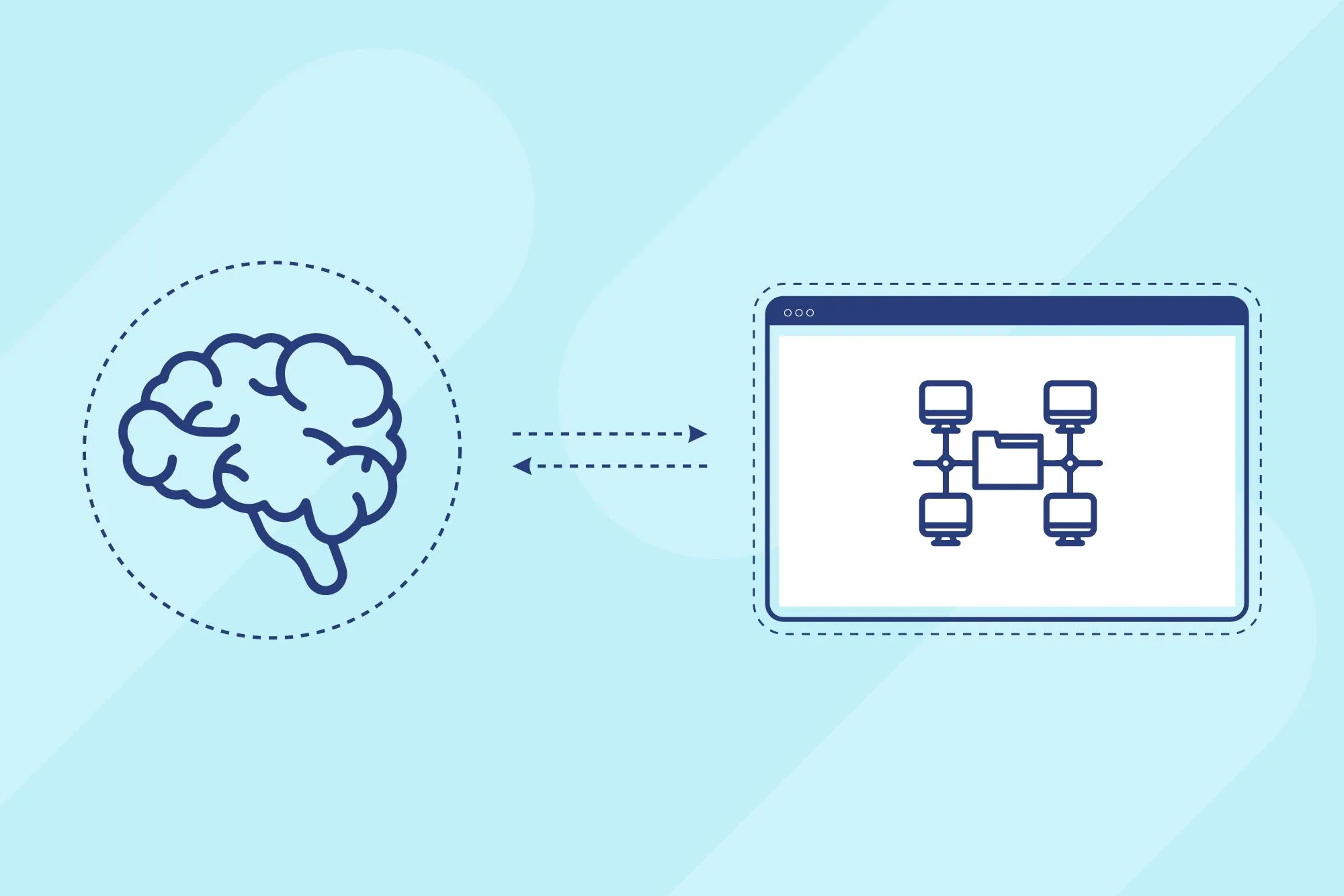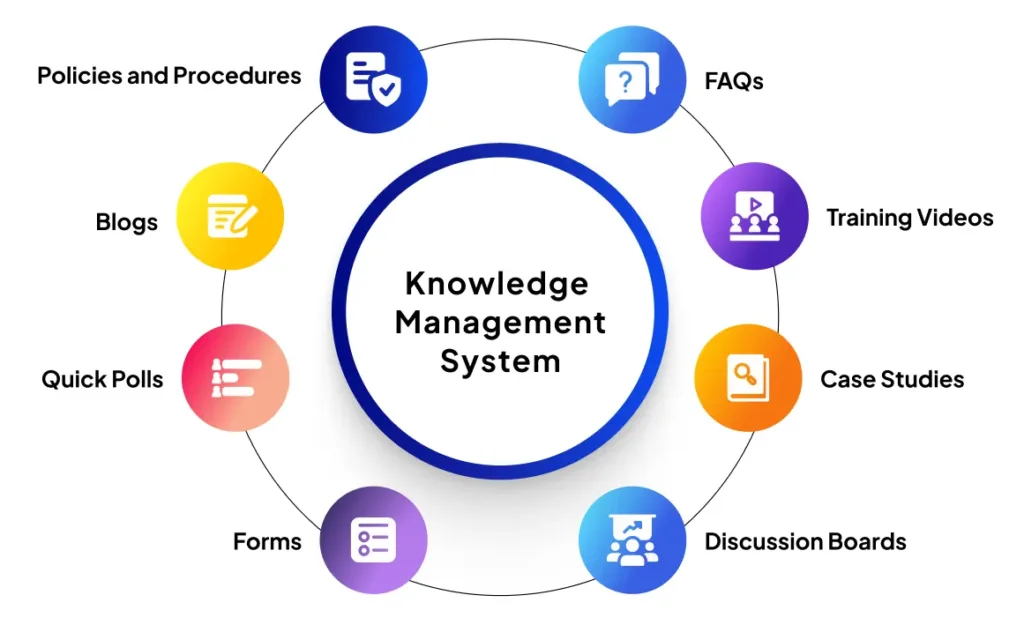
Is a Knowledge Management System Right for You in 2024?
A Knowledge Management system plays a crucial role in breaking down information silos by making knowledge accessible to everyone within an organization. By encouraging the sharing and distribution of knowledge, companies can leverage the collective intelligence of their teams, leading to better decision-making and more effective achievement of their objectives. A strong Knowledge Management system fosters a culture of continuous learning, where employees are empowered to contribute, learn from one another, and adapt to the ever-changing business landscape. This free flow of knowledge throughout the organization not only enhances efficiency but also strengthens the overall growth and success of the company.

Types of Knowledge Management
When we are dealing with knowledge within an organization there are three different types that
we need to be aware of.
1.Explicit
Explicit knowledge, being easily codifiable and communicated, allows for seamless sharing and comprehension among individuals. This valuable form of information includes guidelines such as standard operating procedures, employee handbooks, and HR policies, which serve as essential tools for maintaining organizational structure and consistency.
2. Tacit
Tacit knowledge, in contrast to explicit knowledge, is more challenging to capture and convey. It encompasses the practical skills, experience, and intuition of employees, often relating to areas such as customer support, design, and various expertise. Due to its complex and often subjective nature, tacit knowledge can be difficult to express and share with others, making its transfer and documentation a significant challenge within organizations.
3.Implicit
Implicit knowledge, similar to tacit knowledge, is deeply embedded within organizational processes and often remains unarticulated. However, it holds the potential to be more easily codified than tacit knowledge. This type of knowledge, often referred to as “tribal knowledge,” can be learned and shared among employees, but it has not yet been formally documented or captured. As organizations strive to harness implicit knowledge, they can improve their overall effectiveness by transforming it into actionable and accessible information for the benefit of their teams.
Importance of Knowledge Management system
Without Knowledge Management, organizations face challenges in controlling and understanding the flow of information within their structure. The absence of proper information management systems exerts pressure on knowledgeable employees, who often find themselves assisting their colleagues, leading to a decrease in productivity. This unstructured approach can hinder efficient knowledge dissemination.
By implementing an information management system, organizations can effectively control the flow of knowledge within the company. This ensures that relevant information is accessible to those who require it, at the right time, promoting a more streamlined and productive work environment. In summary, a well-designed information management system is crucial for maintaining a structured and efficient knowledge flow, ultimately benefiting the entire organization.
Benefits of knowledge Management System
1.Faster decision-making
Effortless access to appropriate knowledge empowers employees to expedite their decision-making processes. By leveraging previously made decisions and the collective wisdom within the organization, they can avoid unnecessary repetition and learn from past experiences. This streamlined approach not only enhances individual productivity but also fosters a collaborative work environment, where employees can effectively contribute to the overall growth and success of the organization.
2.Increased collaboration and idea generation
Effective knowledge sharing significantly promotes collaboration among employees by fostering a comprehensive understanding of various team processes and initiatives. This interconnectedness enables colleagues to work cohesively, leveraging each other’s strengths and experiences. By having access to past company initiatives, employees can draw from successful strategies and learn from past mistakes, fostering a more strategic and informed approach to their work. As a result, knowledge sharing not only enhances collaboration but also enhances the organization’s ability to adapt, learn, and grow over time.
3.Enhanced communication throughout your organization
A well-implemented Knowledge Management program plays a pivotal role in enhancing organizational communication by breaking down silos and fostering transparency among teams. By documenting and sharing information, employees gain valuable insights into the workings of other teams, enabling them to collaborate more effectively. This increased communication and knowledge exchange not only strengthens relationships but also helps in identifying synergies and opportunities for cross-functional collaboration. As a result, a successful Knowledge Management program contributes to a more connected, informed, and high-performing organization.
4.Efficient access to knowledge and information
Implementing an effective Knowledge Management program can significantly reduce the time employees spend on searching for information, allowing them to focus on outcome-driven tasks that directly contribute to the company’s growth and success. By organizing and making information easily accessible, employees can quickly find the knowledge they need to perform their duties efficiently. This not only saves time but also enhances productivity, as employees can allocate their efforts to more strategic and impactful assignments. In essence, a well-designed Knowledge Management program empowers employees to make the most of their working hours, ultimately benefiting both the workforce and the organization as a whole.
5.Improved quality of information and data
Actively cultivating information and data within an organization leads to improved quality, as it ensures oversight and maintenance of the company’s valuable assets. This process involves monitoring, updating, and refining the data to maintain its relevance and usefulness for employees. By removing outdated or irrelevant information, the remaining content becomes more focused and valuable, fostering a culture of efficiency and effectiveness. This active cultivation not only enhances the quality of the information but also promotes a better understanding of the organization’s assets, leading to informed decision-making and improved overall performance.
6.Optimized training
New and old employees can take advantage of captured knowledge during their training which
considerably speeds up the process. Training programs are more robust and impart much more
value to employees when they have access to the right documentation.
Document360 is a knowledge management platform that helps teams create, collaborate, and publish a self-service knowledge base for their customers and internal teams
Read More: How to Implement a Comprehensive Knowledge Management System



